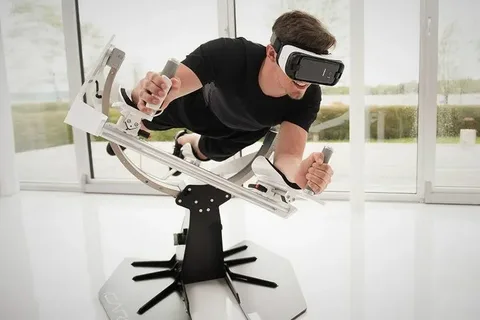Cognitive game-based training: simulators, VR environments and cognitive enhancers
VR cognitive environments are used to treat post-stroke conditions, traumatic brain injuries, and neurodegenerative diseases. These tools promote recovery through repetitive, immersive, and safe mental exercises.
5. Corporate training and productivity
Companies are beginning to use brain-training platforms to improve employee focus, multitasking, and decision-making under time constraints, particularly for high-responsibility roles such as air traffic controllers or emergency managers.
Challenges and limitations
Despite promising outcomes, cognitive training through games and VR has its challenges:
- Transferability: Skills developed in artificial environments may not always generalize to real-world tasks.
- Access to equipment: VR systems and high-fidelity simulators can be costly.
- Overuse concerns: Prolonged exposure to immersive environments may lead to fatigue or simulator sickness.
- Individual variability: Not all users respond equally; genetic, motivational, and cognitive differences play a role.
Researchers emphasize the importance of combining game-based training with real-world practice and professional guidance to ensure sustainable results.
The future of cognitive game-based training
The future lies in personalization, AI integration, and multisensory enhancement. With the rise of wearable EEG devices and biometric feedback systems, cognitive training platforms can now adapt not only to performance but also to emotional and physiological states.
Moreover, next-gen platforms are experimenting with:
- Brain-computer interfaces (BCIs) to detect cognitive fatigue in real-time.
- Augmented reality overlays that guide users through training in mixed-reality environments.
- Adaptive narrative systems that respond emotionally and cognitively to the user’s behavior.
These innovations promise a future where cognitive development is as dynamic, engaging, and effective as physical fitness training.
Conclusion
Cognitive game-based training has evolved from simple brain teasers to complex simulations and VR environments grounded in neuroscience. Its ability to enhance attention, memory, and decision-making is supported by scientific research and increasingly used across sports, education, healthcare, and defense. As technologies become more immersive and personalized, cognitive training is poised to play a central role in how we learn, recover, and perform.




